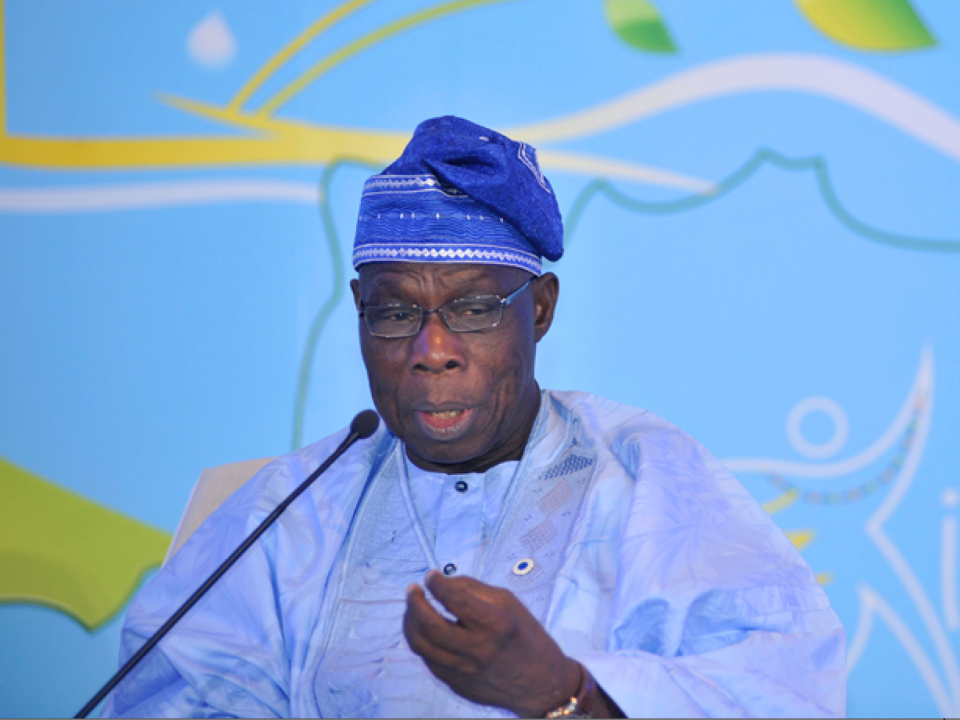Shamefully, our beloved country is held down by childish contradictions that would embarrass primary school students, when properly explained to them. These contradictions are too many. However, I would here examine the contradictions over state police bill, local government autonomy bill, over-centralization of power and our president’s contradiction over restructuring. What is at stake is actually deeper. All the contradictions can be linked to a causal effect called coloniality.
During Buhari’s presidency, only 35 bills out of the 44 constitution amendment bills sent to the states for concurrence in the Fifth Alteration Bills 2023 by the National Assembly (NASS) were approved. Some are to change the name of some LGs. One splits the office of the Attorney-General of the Federation and States into two; AGF and Minister/Commissioner of Justice. Others are on fingerprints, identification, and criminal records; power; national grid system; railways; correctional centres (prisons); airports; and railways. These are clear commendable provisions on devolution which is central in federal practice. However, the most important bill, the state and community police, with respect to our dire security challenges, is excluded.
The bill seeking financial and legislative autonomy for local governments (LGs) was one of the rejected bills. As a result, Ovie Omo-Agege, deputy senate president and the chairperson of the senate constitution review committee, in January 2023, accused some governors of frustrating the LG autonomy bill through the state houses of assembly (HoA) and that 25 states threatened to take no action on the bills unless four bills, including state police and state judicial council, are considered by the National Assembly.
Punch Editorial Board gave the most biting criticism of the LG autonomy bill in January 2023. The Board backs the state houses of assembly for rejecting the bill It stated that “The repudiation is at the heart of true federalism and is consistent with the best global traditions in federal states … In a true federal system, there are two main levers of power – the centre and the federating units.” According to the Board, “state police would have gone some way in bringing about sanity. As it is, the centre is too powerful in Nigeria. This is fueling the inordinate desire of politicians for the do-or-die politics to become president. The powers of the centre should be whittled down to the minimum, allowing the states to become independent economic units … the amendments should be quickly reworked to accommodate state police and resource control.”
The contradiction here is that both critics and advocates of the LG bill point to American constitutionalism. The proponents of the LG’s financial and administrative autonomy point to LGs in United States. The critics of the LG bill also rightly cites the American federalism between the Union and the States, that the Nigerian Union must be thoroughly decentralized. That is the LG bill contradiction.
The State police blackmail by State Assemblies may have prompted the ongoing plan of the federal government on the creation of State police. As President Tinubu constituted a committee (which includes the governors) to explore how state police to address the worsening security situation that had defied various measures, including troop deployment across the country on February 15; the police bill, sponsored by Benjamin Kalu (Deputy Speaker) and 14 others, passed the second reading in the House of Representatives on February 20, 2024. This same bill had failed in the 8th and 9th Assemblies.
Amongst other things, the bill amends the constitution by putting the police, now in the Exclusive Legislative List, on the concurrent list, making it possible for both federal and 36 state governments to have distinct police services, with uniform standards and disparate Commissions. Also, the bill protects the state police from unwarranted interference from the federal police and ensures Federal government to provide grants and aids to state police through the NASS. Existing forest guards in several states, accommodated under the states’ ministries of agriculture, for example, are to be properly constituted and armed.
Unfortunately, the passed bill does not address de-centralization of power. Firstly, governor is to appoint State Police Commissioner (SPC), Deputy and Assistant Commissioners, subject to confirmation by State Assembly, but based on the advice of the Federal Police Service Commission. Same process is to be used to the discipline and remove the same officers . Secondly, National Assembly is to legislate the framework and guidelines for the establishment state police with no inputs from State Assemblies. The contradiction here is that the de-centralized concept of state police is surreptitiously transformed into de-concentration of power, where the federal government still holds the sway.
However, another contradiction looms on the state police bill. Whilst proponents argue for its crucial role in tackling the nation’s worsening security challenges, the staunch critics which includes the Inspector General of Police (IGP) are concerned about the political abuse and manipulation by State governors. This is the second contradiction of the state police bill.
Another telling contradiction is found in president Bola Tinubu. Previously he was a vocal and dogged advocate for restructuring, including the establishment of state police. The records are there. As a member of the PRONACO, I am well aware of his moral and financial contributions, against all odds. His current position against restructuring appears to be more aligned with the same federal government that he had once opposed. This shift has raised concerns about political expediency taking precedence over long-held convictions.
The most important contradiction, however, is that we have an over-centralized Nigerian state that is weak and cannot secure justice, security and developments. De-centralization actually means more stronger Union with stronger and effective federal institutions, such as the military, with a high stake in our own industrial/economic complex.
Annoyingly, all these childish contradictions that would embarrass primary school students, are mostly resolved in the polycentric recommendations of 2014 National Conference (CONFAB). The question then is what is the real problem? Why are we trapped within all these contraditions?
The real issue here is that our contradictions are tied to the ongoing challenges of coloniality. According to Toyin Falola, “When one subjects the end product of colonization and coloniality to a thorough examination, one quickly sees that it has been effectively deployed to drive three significant things in the lives of the marginalized community who are at the bottom end. These are realized as the coloniality of being, coloniality of power, and coloniality of knowledge.”
Both the over-concentration or de-concentration of power and the centralized police force are the lever of coloniality of power. Whilst the coloniality of power, according to Egla Martínez Salazar, “takes authority, appropriates land, and exploits labor,” coloniality of knowledge, as identified by Anibal Quijano, “appropriates meaning,” demeans primordial wisdom and excludes the primordial and indigenous polities in the constitution. And both coloniality of power and knowledge as William Mpofu taught transmogrify colonial subjects to “victims of the coloniality of being” banished in “a condition of inferiorisation, peripheralization, and dehumanization.” Contradictions are the flip side of this coloniality of being.
The over-concentration or de-concentration of power and the centralized police force are the most powerful manifestations of coloniality that secures an international division of labour between the Euro-Americans and Africans, and is the root of the on-going neo-liberal capitalism, such as the removal of subsidies.
We should however note that decoloniality or what Toyin Falola calls ‘decolonisation of … epistemologies’ does not entail a war or a break with the Euro-Americans but rather the security of our own survival and pursuits of excellence as human beings whilst preserving our peaceful relations and partnership, within the undeniable Euro-American modernity. We only need air to breath and experience again what it means to be human.
Interestingly, nothing is new under the sun. Odu Ifa Iwori Ọyẹku, hints us about willful servitude, which in our time manifests as coloniality. This Odu Ifa say “Ọkọ un lọ s’oko, o k’ọju sile. Ọkọ un t’oko bọ, o k’ọju s’oko. Ẹyin o mọ pe lodilodi l’Ọkọ un ṣe. A dia fun wọn ni Ilu Lodi, Ọmọ Aṣẹrubọbatan. Ẹgọ, ẹgọ lo pa ara Ilu Lodi, Ọmọ Aṣẹrubọbatan.” This can be interpreted as “The hoe is going to the farm but face the house. The hoe is going to the house, but faces the farm. Do you not know that the hoe is a master of contradictions? Ifa declared for the city of Contradictions, children of those who-are-related-to-the-king-as-slaves. Stupidity, stupidity killed the people of the city of Contradictions, children of those who-are-related-to-the-king-as-slaves.”
Nigeria, today falls into that typology Contradictionsof the “city of ” – Omo Aserubobatan. The truthful people in this world are few, but the wicked are in their millions. But the day of karma isn’t so far. As a result, one need not be pained or worried.





